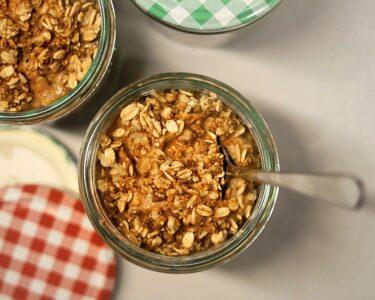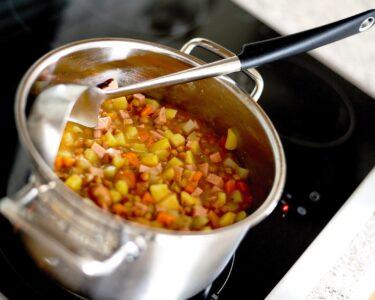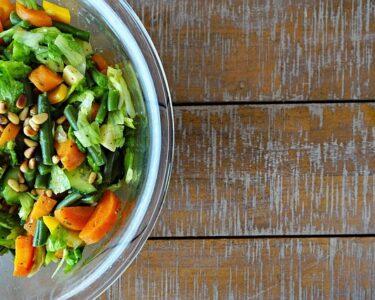Rainy season brings much-awaited relief from the extreme heat that we experience during summer. Rain showers bring nature alive, there is lush greenery spread all around and a wonderfully pleasant atmosphere. Despite all the good change the rain brings about it also brings in the non-desirable health problems. Damp wet conditions and sudden fluctuation in temperature weakens the digestive system and decreases the ability of our body’s defense mechanism to fight against many germs, bacteria which are predominant in this season. So due to a weak immune system, we are easily prone to food-borne and water-borne diseases like typhoid, jaundice, viral infections like cold and cough, flu and many more. The occurrence of Dengue fever, Malaria etc. are also increased during this monsoon season. Is this worrying you? there is no need to panic now it becomes even more necessary to safeguard your health from falling sick during this time. Yes, maintaining a healthy lifestyle has been proved beneficial in preventing and controlling ailments and diseases that are common in the monsoon season. Nature has provided us with nutritious fruits and vegetables to keep ourselves healthy and also allowing our body to accustom to the changing climate.
Why we need special foods during Monsoons?
Getting sick can stress your immune system, and when the performance of our immune system is compromised, we face illness. Getting cold or fever often leads to taking antibiotics, which are unnecessary and can damage your gut. Give your body the fuel it needs to function optimally, will help your body to stay healthy and fight off infections. So, to stay healthy in monsoons we should include and exclude certain foods to boost our immunity and protect us from monsoon menace.

What is the Importance of seasonal foods?
Eating foods that are in season provides nutrients to match the condition of a particular time of a year. Seasonal fruits and vegetables retain more nutrients than their counterparts making them the better choice for your health. The taste of seasonal food is far better than the preserved ones.Storage and preservation of non – seasonal foods gradually reduce the nutrient content of foods.
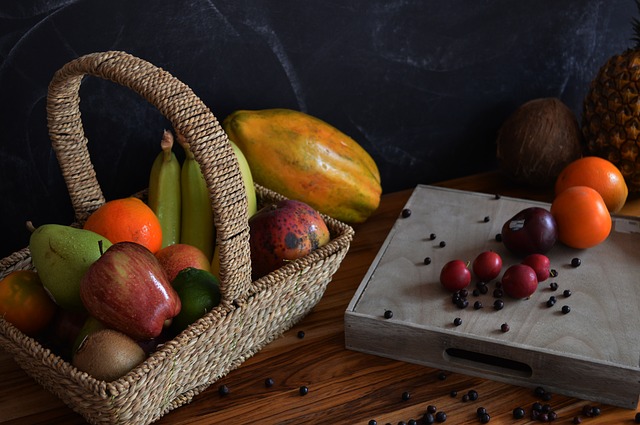
What are the best foods that should be included during Monsoons?
Let’s look at the nutritional benefits of foods that are easily available in the market in Monsoon this season.
1. Guava
With early showers, Guava is the first seasonal fruit available in the market. This nutrient-dense, low-calorie fruits have antibacterial, anti-fungal and antiviral properties which boost your immunity and protect you from commonly occurred diseases of monsoon, like digestive disorders, flue etc.
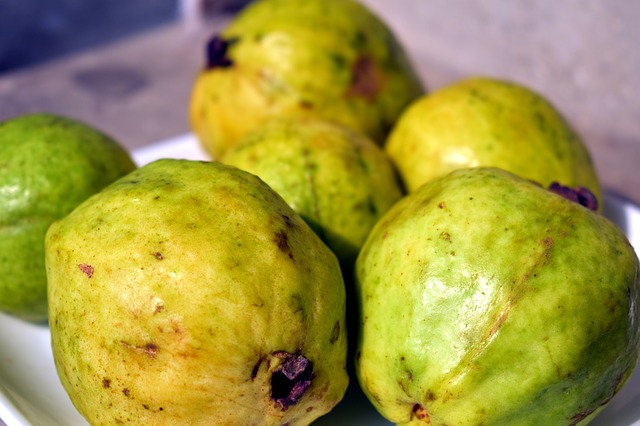
Nutritional Benefits of Guava (1, 2, 3 )
It is a poor source of calorie, protein, fat, carbohydrate but a good source of dietary fibre.
- It supplies several minerals like calcium, iron, magnesium, zinc, selenium etc.
- It is an excellent source of potassium and vitamin-C.
- It supplies good amounts of B-vitamins and pro-vitamin-A (Beta carotene).
- Guava is rich in antioxidants.
Due to the high nutritional value of guava, this fruit is considered a super-fruit. One guava fruit provides about 4 times of Vitamin C that supplies by an orange.
Regular intake of guava throughout the monsoon season helps to prevent digestion problems, cough and cold, skin infections etc.
2. Papaya
Snack on this delicious fruit. Papaya is loaded with antioxidants and phytochemical and thereby help to reduce inflammation and prevent several diseases. They contain enzyme papain that aids in digestion and keeps your gut healthy.
Nutritional and Health Benefits of Papaya ( 4 )
- Papaya is considered as a low-calorie nutrient-dense fruit.
- Since the papaya is an excellent source of dietary fiber, regular intake of papaya helps to prevent constipation.
- Papaya intake is good for those suffering from high blood cholesterol levels because the fiber content of papaya helps to reduce blood cholesterol level.
- Papaya is an excellent source of vitamin-C, daily intake of one serving of papaya can meet your daily vitamin-C requirement.
- It is also a good source of Provitamin-A (Beta carotene). Due to its high vitamin A and carotenoids contents, it helps to prevent cataract and age-related macular degeneration.
- It has low levels of sodium and high levels of potassium and can, therefore, be helpful for the hypertensive people to balance their overall daily dietary intake of sodium.
- Papaya also contains small amounts of important minerals calcium, magnesium, potassium, iron, manganese, zinc, copper, boron and selenium.
- It is rich in antioxidants, B vitamins, folate and pantothenic acid, and potassium and magnesium as well as fiber.
- It also provides some vitamin E, K, thiamine, riboflavin, niacin, pyridoxine and folate.
- It contains around 5% protein.
3. Asian Palm Fruit
It is also known as Tal / Taal in Bangladesh. Ripe palmyra fruit is low in carbohydrate, protein, fat, and fibre. But it provides a feeling of fullness in the stomach, and hence it is good for obese individuals.
4. Peaches
Peaches are abundant in antioxidants, vitamin C and vitamin A. Presence of beta carotene help to enhance vision, protects the skin and lung diseases. It has high fibre count and as it is low in calories it aids in weight loss. ( 5, 6 )
5. Roasted Corn or Bhutta
This monsoon you should not miss the all-time favorite snack, our local corn, which is usually eaten either roasted or steamed. It is a widely available cereal crop in the world. They are packed with a wide range of nutrients.
Nutritional Benefits of Roasted Corn ( 7, 8, 9, 10 )
- Corn is an important source of starch, protein, and lipids and, thus, plays a significant role in nutrition.
- The fat present in corn is a good source of polyunsaturated fatty acids (PUFA) and monounsaturated fatty acids (MUFA).
- They are rich in dietary fibre.
- Roasted corns are good sources of vitamin-C, vitamin-E, vitamin-K, and several B-vitamins like thiamine, riboflavin, niacin, pantothenic acid, pyridoxine, folic acid etc.
- It provides selenium.
- Potassium is a major nutrient present which has a good significance because an average human diet is deficient in it.
Role of Corn in the Prevention of Common Diseases
- Corn is a good source of several antioxidants and phytochemicals, which reduces the ageing process and helps to prevent many diseases.
- They are rich in essential fatty acids (especially linoleic acid) and thus it plays an important role in maintaining blood pressure, regulating blood cholesterol level, and preventing cardiovascular diseases.
- Regular consumption of corn influences cholesterol metabolism lowers body fat storage and thus reduces the risk of atherosclerosis, hyperlipidemia, diabetes, and obesity.
- It is a good source of dietary fibre and helps in body weight control. So, it is good for obese individuals.
- Corn helps to prevent constipation.
- Corn intake provides a good feeling of fullness in the stomach, so it is beneficial for those who are overweight and tries to reduce body weight.
6. Bitter Melon
It is popularly known as Karela. This bitter vegetable is a good source of nutrients like vitamin c folate and vitamin A. They are a good source of fibre. They have an antiviral property which stimulates the immune system and aid in digestion. Having karela juice regularly helps to lower the blood sugar level in diabetic patients. (11, 12 )
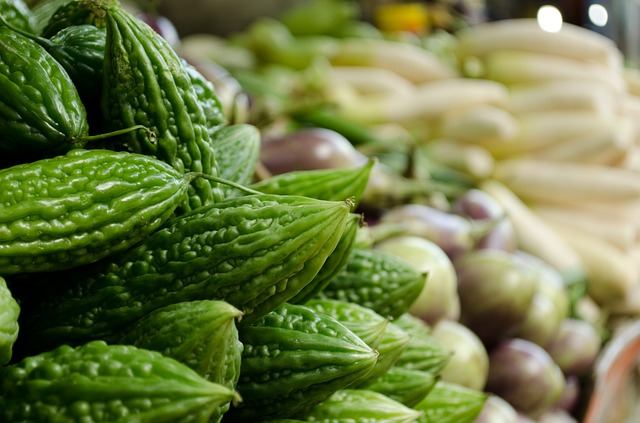
7. Teasle gourd / Spiny gourd
Commonly known as Kantola in India. It belongs to the bitter gourd family but is not as bitter in taste. It is mainly available in the rainy season. It is high in fibre and antioxidants. They help in digestion. The high phenolic content of this spiny gourd makes it a very good antioxidant and promotes the cleansing of the body. It exhibits anti-allergic and analgesic properties that provide relief from cold flu and cough. (13)
8. Vegetables like bottle gourd, ridge gourd, ladies finger, radish, tendli
There are some of the vegetables which are abundantly available in the market. Regularly consuming these vegetables have many health benefits. These vegetables are rich in both soluble and insoluble fibres. It is suitable for light low-calorie diet as well as for people with digestive problems and those recovering from an illness or injury, as these vegetables are light on the stomach. They are high in sodium, potassium essential minerals and trace elements which are responsible for regulating BP and prevent the risk of heart ailments.
What are the foods to be avoided in Monsoons?
1. Green leafy vegetables
Yes, you read it right vegetables like spinach, fenugreek leaves, coriander leaves, cauliflower, cabbage are to be avoided in this rainy season. No doubt they are a nutrient-dense vegetable but consuming in this season can lead to many adverse effects. How? The natural dampness, dirt and mud present in these leaves make them a good breeding ground for many different types of germs and bacteria. If not washed properly and eaten it can lead to many gastronomical problems and stomach upset.
2. Seafoods
Monsoon is the breeding season for the fishes and many other sea creatures. If consumed can cause stomach infection or severe food poisoning. Better to avoid than to fall sick.
3. Mushrooms
Mushrooms Generally grow in damp areas and have to be cleaned before consumption but during monsoon season the risk of bacterial infection is at peak so on a safer side it is recommended to avoid eating mushroom.
4. Outside street food
Street foods like chat, panipuri, bhelpuri should be completely avoided. There are more chances of water and food to be contaminated and also unhygienic handling during the preparation of food can lead to many waterborne and food-borne diseases leading to food poisoning, diarrhea etc. Avoid eating cut fruits from street vendors, they must have been left out for long. Eat fresh hot homemade food during this season
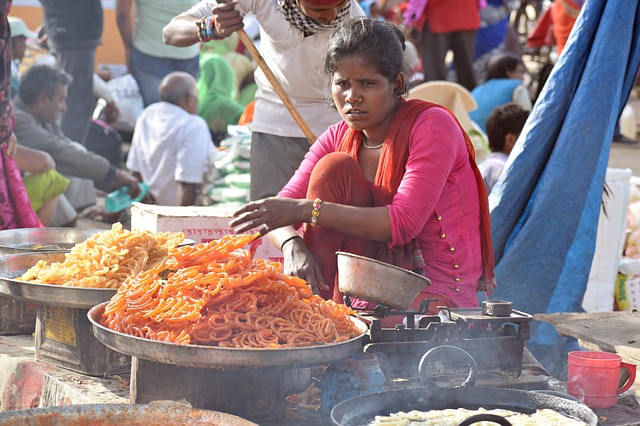
5. Chilled and Refrigerated Foods
Avoid Ice-creams, Chocolates, Pastries and Aerated drinks. These empty sources of calorie are harmful to your gut and can cause severe upper respiratory infections.
Here are some preventive measures to be taken in RAINY SEASON.
- Keep yourself hydrated with boiled or purified water. Adequate hydration is the key to flushing your system. Fluids help your body to flush out bacteria and viruses from your system.
- Wash fruits and vegetables properly with clean water.
- Warm drinks like herbal teas which are filled with anti-bacterial properties of tulsi, cinnamon, ginger and honey. Have them to boost your immunity levels. Adding Kesar and turmeric to a hot glass of milk helps in curing throat infections. Vegetable soups will help to ignite the appetite in monsoons. ( 14 )
- Include immune-boosting spices like ginger, garlic, cinnamon, turmeric, black pepper, cloves in your diet. These spices aid in digestion and help to prevent allergies. ( 15, 16, 17, 18 )
- Rain gear is a must when going out
- Use hand sanitizer or hand wash regularly
- Keep your home and surroundings clean. Use powerful mosquito repellent to handle mosquito menace.
- Consult the doctor if you have a cold and cough or other persistent symptoms.
- Having a healthy nutritional diet with regular exercises along with timely preventive measures will help you in a long way to safeguard your health from infections. Enjoy your monsoon season to the fullest.
Also Read,
Hot is healthy,12 health benefits of black pepper
Cinnamon: the super spice in your kitchen
Turmeric Milk -Recipe and health benefits
Bottom line
Including seasonal fruits and vegetables in our diet play an important role in not only preventing infection due to its high antioxidants properties but also aid in weight management and all-round well being. Make some modifications to your standard diet by including foods that are light on your digestive system, at the same time peps up your metabolic rates and help you fight against seasonal allergies. Don’t miss your favorite fritters and ginger tea this monsoon, but make sure you make them at home. Happy and Healthy monsoons!!
.

